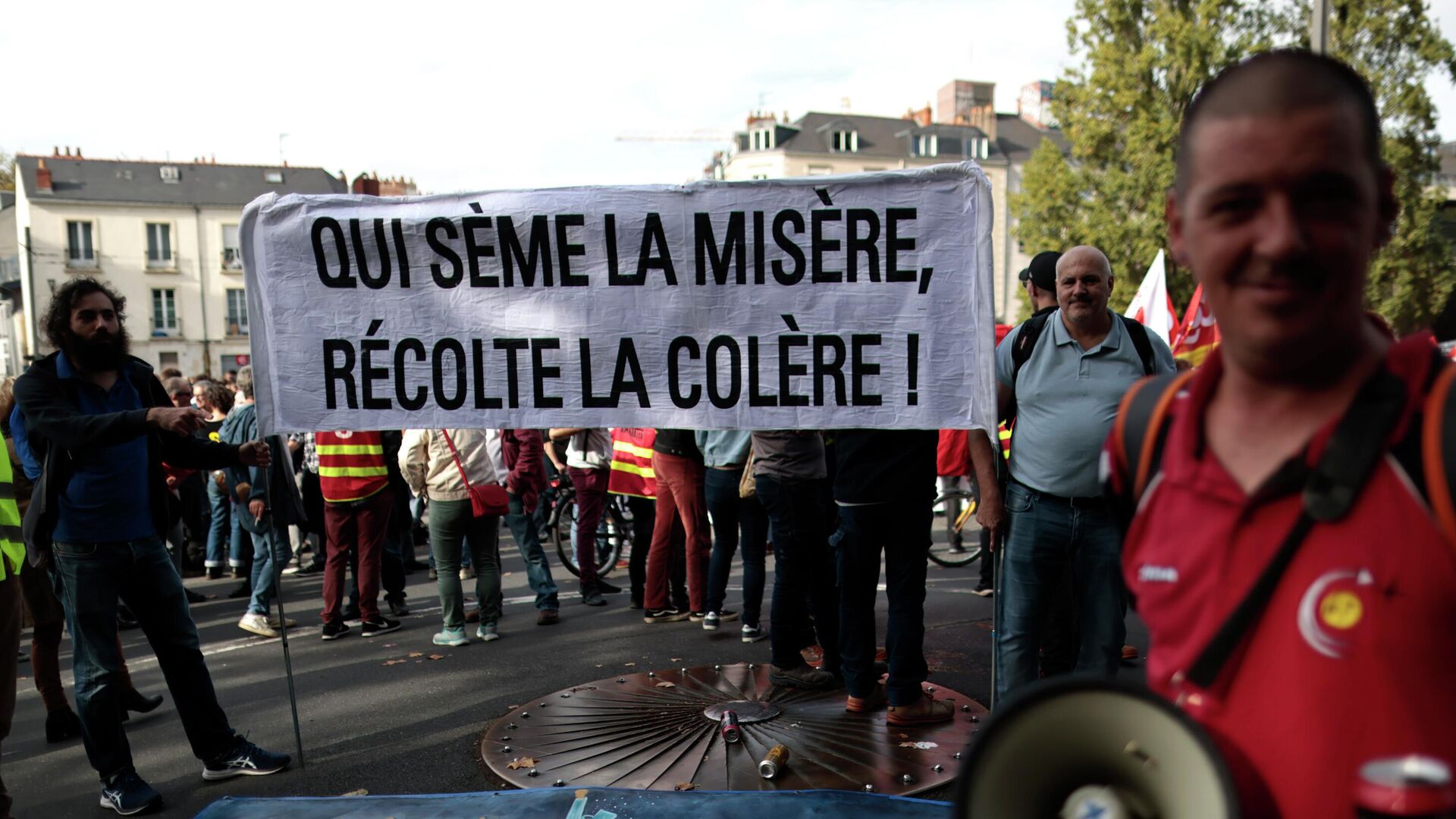EU Loses Economic Advantages Due to Rejection of Russian Fuel - Research

© AP Photo / Jeremias Gonzalez / Protesters hold a banner that reads "who sows misery reaps anger" during a demonstration in Nantes, western France
Subscribe
MOSCOW (Sputnik) - Ex-head of European Central Bank Mario Draghi prepared a comprehensive report on EU competitiveness. The document exposes vulnerabilities of European economy amid geopolitical tensions.
The EU is losing its economic advantages due to the rejection of the use of Russian fuel and competition with China, to the report on future of European competitiveness read on Monday.
"The previous global paradigm is fading. The era of rapid world trade growth looks to have passed, with EU companies facing both greater competition from abroad and lower access to overseas markets. Europe has abruptly lost its most important supplier of energy, Russia... Chinese competition is becoming acute in industries like clean tech and electric vehicles, driven by a powerful combination of massive industrial policy and subsidies, rapid innovation, control of raw materials and ability to produce at continent-wide scale," the report read.
The EU can cease to exist unless it accelerates economic growth and revises its ambitions, the report said.
"First – and most importantly – Europe must profoundly refocus its collective efforts on closing the innovation gap with the US and China, especially in advanced technologies," the document said.
The EU is behind the US in terms of tech companies, the report said.
"Europe largely missed out on the digital revolution led by the internet and the productivity gains it brought: in fact, the productivity gap between the EU and the US is largely explained by the tech sector. The EU is weak in the emerging technologies that will drive future growth. Only four of the world’s top 50 tech companies are European," the report said.
Soaring Enegry Prices
Gas prices in the EU are 4-5 times higher than those in the US, the report on future of European competitiveness added.
"Even though energy prices have fallen considerably from their peaks, EU companies still face electricity prices that are 2-3 times those in the US. Natural gas prices paid are 4-5 times higher. This price gap is primarily driven by Europe’s lack of natural resources, but also by fundamental issues with our common energy market," the report read.
The EU market is facing fundamental problems, as there are not enough resources, the document said.
"This price gap is primarily driven by Europe’s lack of natural resources, but also by fundamental issues with our common energy market. Market rules prevent industries and households from capturing the full benefits of clean energy in their bills. High taxes and rents captured by financial traders raise energy costs for our economy," the report said.
Reducing energy cooperation with Russia became one of the European Union's top priorities after the start of Moscow's special military operation, when the bloc decided to phase out its imports of Russian fuel. The decision led to a sharp increase in gas prices in the European Union.
US No Longer Guarantees EU Security
The US is no longer ready to be a "security umbrella" for Europe, and the EU is unable to defend itself yet, the report on future of European competitiveness said on Monday.
"At the same time, US strategic doctrine is shifting away from Europe and towards the Pacific Rim – for example in the format of AUKUS – driven by the perceived threat of China. As a result, a growing demand for defence capability is being met by a shrinking supply – a gap which Europe itself must fill," the report said.
The EU countries in 2022-2023 made 78% of defense purchases abroad, the report said.
"We also do not favour competitive European defense companies. Between mid-2022 and mid-2023, 78% of total procurement spending went to non-EU suppliers, out of which 63% went to the US," the report said.
The European Union is 40% dependent on external imports of technology and critical raw materials, and this dependence will continue, the document found.
"Europe has extensive external dependencies, ranging from critical raw materials (CRMs) to advanced technologies. Many of these dependencies could become vulnerabilities in a situation where trade fragments along geopolitical lines. Around 40% of Europe’s imports are sourced from a small number of suppliers and difficult to substitute, and around half of these imports originate from countries with which it is not strategically aligned," the report said.



